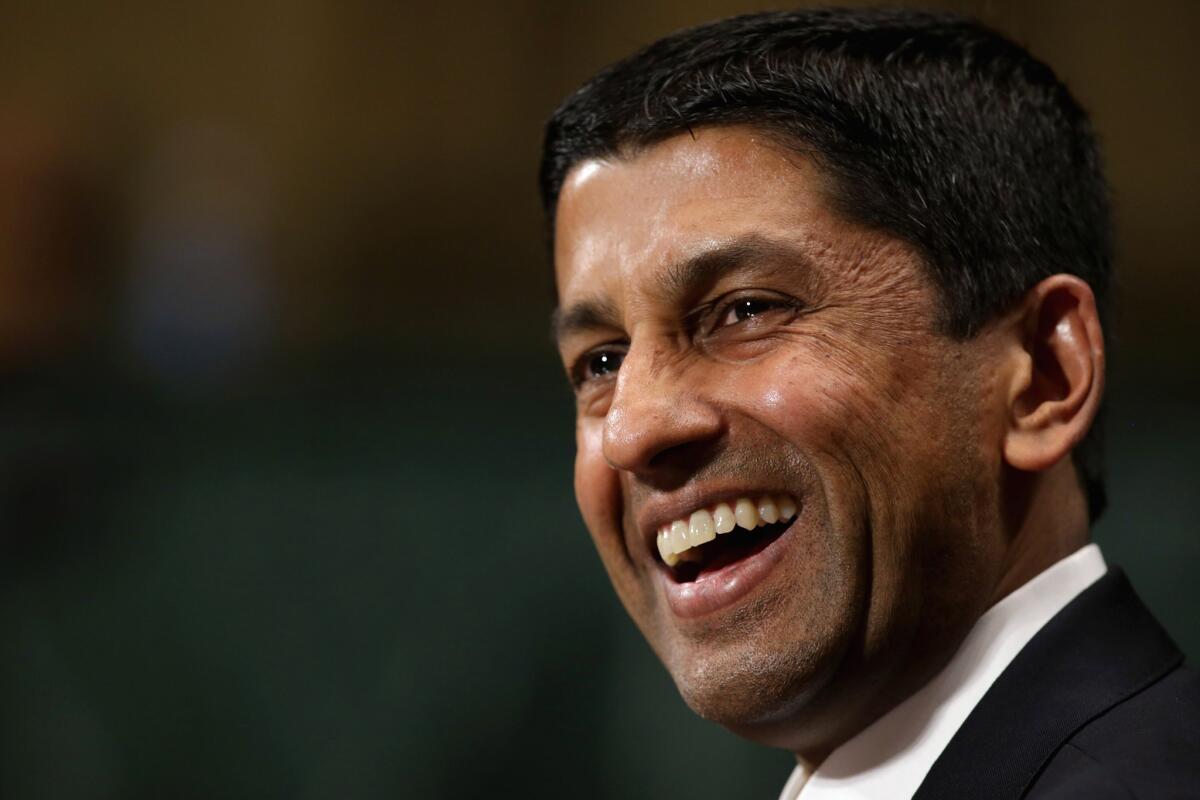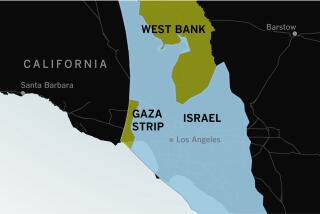Prayers of an Indian village go unanswered with Supreme Court nomination

Sri Srinivasan testifies before the Senate Judiciary Committee in April 2013. He was confirmed to the U.S. Court of Appeals for the District of Columbia unanimously by the Senate that year and was a finalist to replace the late Supreme Court Justice Antonin Scalia.
Reporting from Mumbai, India — The prayers of a southern Indian village went unanswered Wednesday morning when Obama named Merrick Garland as his next Supreme Court nominee.
Distant relatives and well-wishers of Sri Srinivasan, believed to be a likely pick for the nomination, had been holding services in his honor in the riverside hamlet of Mela Thiruvenkatanathapuram, where Srinivasan’s father and grandfather were born.
At the main temple, topped with a trapezoidal roof studded with colorful statues of Hindu deities, a few dozen worshipers gathered for services and distributed food to the poor.
“They prayed for the health of Mr. Srinivasan, for his successful career, for the welfare of the world and the greatness of the United States,” Ganapathy Subramanian, 68, a retired teacher and family friend, said by phone Wednesday from Tirunelveli.
NEWSLETTER: Get the day’s top headlines from Times Editor Davan Maharaj >>
Srinivasan’s grandfather, Padmanabhan Iyer, was a teacher, farmer and yarn merchant. The Brahmin caste traditionally is associated with the priesthood, and Iyer was known as a pious, middle-class man who had six sons and two daughters.
Iyer’s youngest son, Srinivasan’s father, was a math professor who moved to the northern Indian city of Chandigarh. Sri Srinivasan was born there, and in the early 1970s, when he was 4 years old, the family moved to Kansas.
None of Srinivasan’s close relatives live in Mela Thiruvenkatanathapuram anymore; most have moved to nearby major cities such as Chennai and Bangalore. His grandfather Iyer died many years ago. Srinivasan has only visited the village of 5,000 people a few times, Subramanian said — most recently about a decade ago.
When Srinivasan was about 11, according to friends of his family, his parents brought him to their ancestral home in southern India for an important rite of passage for men in the Brahmin community, the highest caste in Hinduism. In a ceremony in the temple town of Tirunelveli, family friends said, a sacred thread was tied around Srinivasan’s body. The thread, known in the local Tamil language as punul, is made up of three cotton strands that symbolize a trinity of goddesses, and marks the beginning of a boy’s education.
See more of our top stories on Facebook >>
Subramanian said locals had little information about Srinivasan and were trying to locate photographs of the ceremony. The task has been complicated by the fact that so many of the elders have passed away and Srinivasan’s aunts, uncles and cousins are scattered across India and beyond, he said.
The village was still proud of its “native son,” despite the news. “He was considered for the highest post,” Subramanian said. “We will keep praying for his health and we will pray for world peace.”
RELATED:
Obama picks Merrick Garland for Supreme Court, ‘one of America’s sharpest legal minds’
Opinion: Garland nomination to Supreme Court could put GOP in no-win situation
More to Read
Sign up for Essential California
The most important California stories and recommendations in your inbox every morning.
You may occasionally receive promotional content from the Los Angeles Times.







